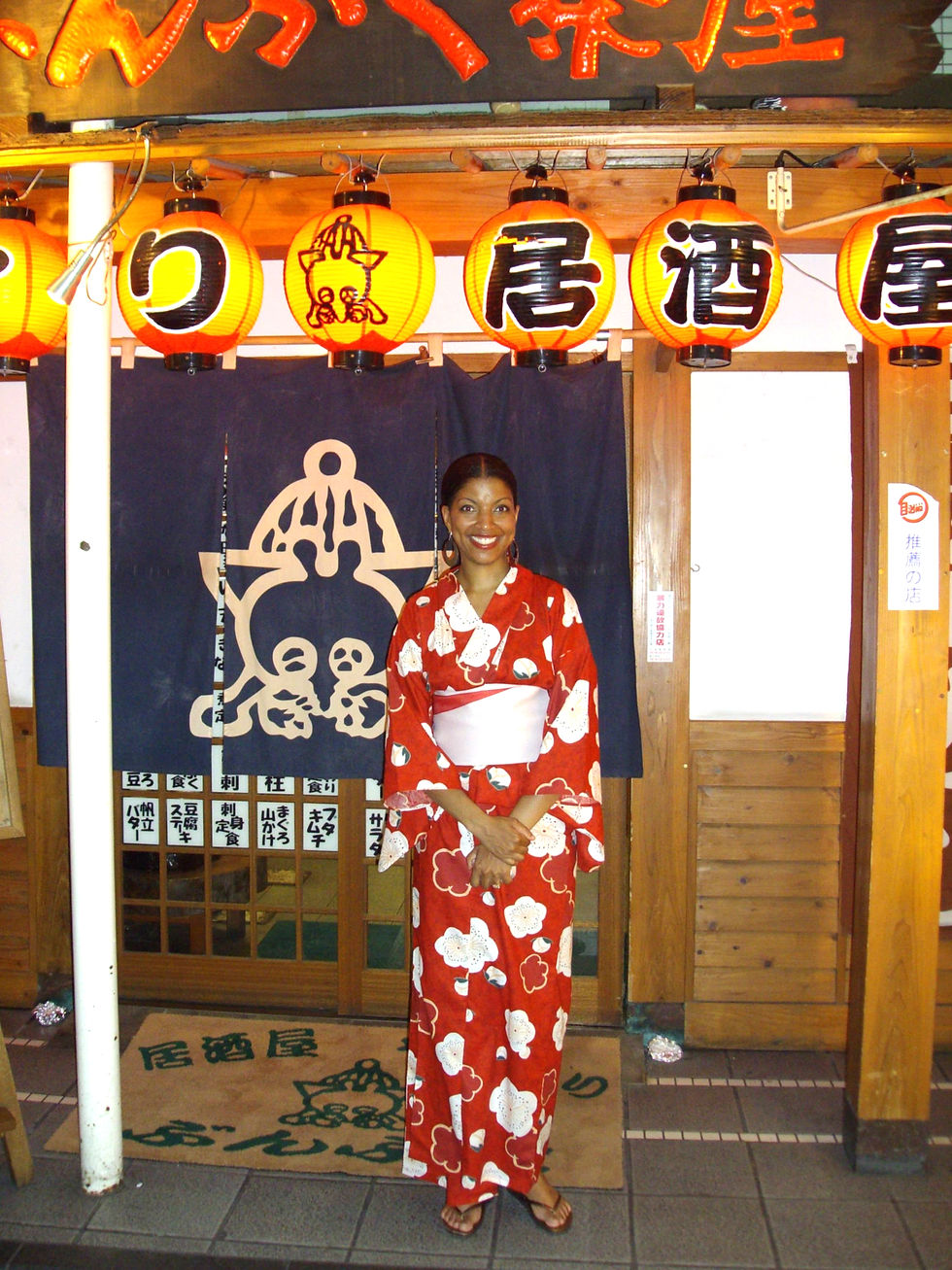WA, THE DIPLOMAT: Or How American and Japanese Workers Differ
- Donella Hawthorne

- Dec 1, 2024
- 3 min read

Teaching English abroad didn’t attract the traditional working professionals. Unlike me, the teachers were young, most just out of college. And like me, hadn’t arrived so much to work as to get a free ticket to Japan. When my husband and I first arrived, in business suits, Manager, as she was called by the gaijin, or foreign, staff (in custom with the Japanese way of addressing people by title) was delighted. The other gaijin teachers looked like extras from a Mountain Dew commercial.
“Ah, New Yorkahs. You dress more.. nanjyikana.. fashionable than West coast, right?” She asked us.
I had never been to the west coast. “Perhaps.”
Months later, Management began an ill-fated attempt to crack down on dress code. The males, particularly, groaned at the idea of a collared dress shirt as described in Tamehiro's soft and halting English, “wis no loud coror.”
So Management downgraded to polos. In an effort to display our company solidarity, they proposed a group visit to Uniqlo for identical, appropriately innocuous shirts. This, too, however, was met with protests. Manager was visibly frustrated with her rebellious, uncooperative staff.
“Why do they not understand?” She asked me one day. “This is business, this is professional!”
Wa, meaning harmony, is the glue that holds Japanese society together--reducing the rate of spontaneous ass-kickings. Wa means bowing and honorific language. But most importantly, it means not pissing people off.
Wanting to exercise my newly developing wa sensibilities, I spoke delicately. “The foreign teachers are very young, Manager.”
“And why do they come here and not study? What do they do?” Manager wailed.
"They drink and they go to bars on the weekends and … they party... and drink.”
“Why?” Manager asked, looking deeply perplexed.
I was continually amazed by the Japanese determination to improve themselves. Eternally curious and devoted to knowledge, they were ommitted to lifelong learning, even in their golden years.
“Well, generally, I think Japanese go abroad to study, whereas foreigners don't. If they happen to learn something along the way, that’s okay. But foreigners don’t want to learn so much as they want to experience.”
Manager looks at me and says nothing. This Western idea of experience as education is bullshit.
At another point, Jukucho, Manager's husband and head boss, and Manager ask me for ways to ‘motivate’ the foreign staff.
There wasn't. But I was really getting into this ‘wa’ thing.
“Hmmm….” I hummed. Wa is an ellipsis.. What you don’t say.
“Well, I don’t think it's possible.” I blurted. Shit. You never say 'no'. If something was actually impossible, you'd mutter the standard, 'Ahhh…' or 'Mmmmm…' followed by a 'We’ll see.', whereupon the issue would never be addressed again unless that person, in their obtuse gaijinity, foolhardedly insists, which would invite embarrassment upon them and most importantly, yourself, who will then have to repeat the unfortunate declaration of, 'We’ll see.' which, in wa terms, basically means, 'What part of ‘no’ do you not fucking understand?'
“Why do you say that?” Jukucho smiles. In wa, a smile could mean anything. I think he's saying, ‘I hate you, bitch.’.
“Well, I mean, Japanese people work very hard…” I begin.
Manager pipes in with her voice, always on the verge of a high pitched scream. “But in America, in New York, you work hard, right? On the east coast, you work very hard, I think!”
I imagine the images in her mind-- scenes from 1970's dystopian American flicks of overworked executives pouring over stacks of paper and falling asleep on the subway.
“Yes, Americans work very hard but…” I paused. How to explain this in a land where there was a term for 'death from overwork' and where grown men wore Winnie the pooh surgical masks (pre-COVID) to work rather than call in sick?
“Americans need rewards, incentives, you know? They need over-time pay. They need an extra day off here and there. They need… favors.”
Manager and Jukucho look at me without blinking.
“For example, if a worker comes in before his scheduled time and leaves after his scheduled time, he expects to be paid for his extra time.”
Manager and Jukucho's faces twitch almost imperceptively. The concept of free time is prickling at their senses like a buzzing, infested insect with a plague that can destroy populations and bring down kingdoms. They are terrified.
I have not heard a request for ways to ‘motivate’ the foreign staff since.











Comments